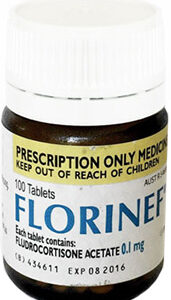Prilosec Medication Overview
Prilosec, generically known as omeprazole, is a proton pump inhibitor (PPI) that reduces the production of stomach acid. It’s commonly used to treat gastroesophageal reflux disease (GERD), stomach ulcers, and conditions that cause excessive stomach acid such as Zollinger-Ellison syndrome.
Therapeutic Indications
Prilosec is indicated for the treatment of active duodenal ulcer, the eradication of Helicobacter pylori to reduce the risk of duodenal ulcer recurrence, treatment of active benign gastric ulcer, treatment of gastroesophageal reflux disease (GERD), treatment of erosive esophagitis, maintenance healing of erosive esophagitis, and for the long-term treatment of pathologic hypersecretory conditions, including Zollinger-Ellison syndrome and other conditions causing excessive stomach acid secretion.
Dosage and Administration
Prilosec should be taken before meals. The capsules should be swallowed whole with water. For patients unable to swallow an intact capsule, the contents can be mixed with applesauce and ingested immediately. Dosage depends on the condition being treated and the patient’s response to therapy. Dosing ranges from 10 mg to 40 mg once daily, with the course of treatment lasting from a few weeks to several months based on the indication and clinical response.
Specific Patient Populations
Dosing adjustments may be necessary for patients with hepatic impairment. The use of Prilosec is not recommended in children under one year of age. For pediatric patients 1 year of age and older, dosing is weight-based. Prilosec has not been shown to be harmful to pregnant women, but should only be used if clearly needed. Caution should be exercised when Prilosec is administered to nursing mothers.
Drug Interactions
Prilosec can interact with some medications such as clopidogrel, methotrexate, and digoxin, potentially leading to increased risk of adverse reactions. It may also affect the absorption of drugs that require an acidic stomach environment (e.g. ketoconazole, atazanavir, iron salts, and erlotinib) and can alter the metabolism of other drugs processed by the cytochrome P450 enzyme system.
Adverse Reactions and Side Effects
Common side effects of Prilosec include headache, abdominal pain, nausea, diarrhea, vomiting, and flatulence. Long-term use of Prilosec may be associated with an increased risk of bone fractures, Clostridium difficile infection, hypomagnesemia, and vitamin B12 deficiency. Additionally, acute interstitial nephritis and lupus erythematosus have been reported in patients on omeprazole therapy.
Usage Instructions
Prolonged use may be related to an increased risk of gastrointestinal infections such as Salmonella and Campylobacter. Prilosec should be dispensed with a Patient Package Insert which provides important instructions on how to take the medicine. It is imperative that patients follow the prescribed regimen and not take Prilosec for longer than recommended.
Storage and Handling
Prilosec should be stored at room temperature away from moisture and heat. Keep the medication in its original packaging until it is time to take it. Capsules should not be stored in damp areas, such as bathrooms, and should be kept out of reach of children.
Monitoring and Follow-Up
Patients on Prilosec therapy should have regular follow-up appointments to monitor for effectiveness of the medication and the development of any adverse reactions. Monitoring may include assessments for relief of symptoms, endoscopic evaluations, and laboratory tests to monitor for metabolic effects, including magnesium levels with prolonged treatment.
Special Instructions for Missed Doses
In the event a dose is missed, patients should take the dose as soon as they remember. However, if it is almost time for the next dose, the missed dose should be skipped, and the regular dosing schedule resumed. Patients should not take two doses at one time to make up for a missed dose.
Discontinuation of Prilosec
If a decision is made to discontinue Prilosec, this should be done under medical supervision with consideration for the gradual reduction of dose, particularly in patients who have been on long-term treatment. Abrupt cessation may lead to rebound acid hypersecretion.






Reviews
There are no reviews yet.